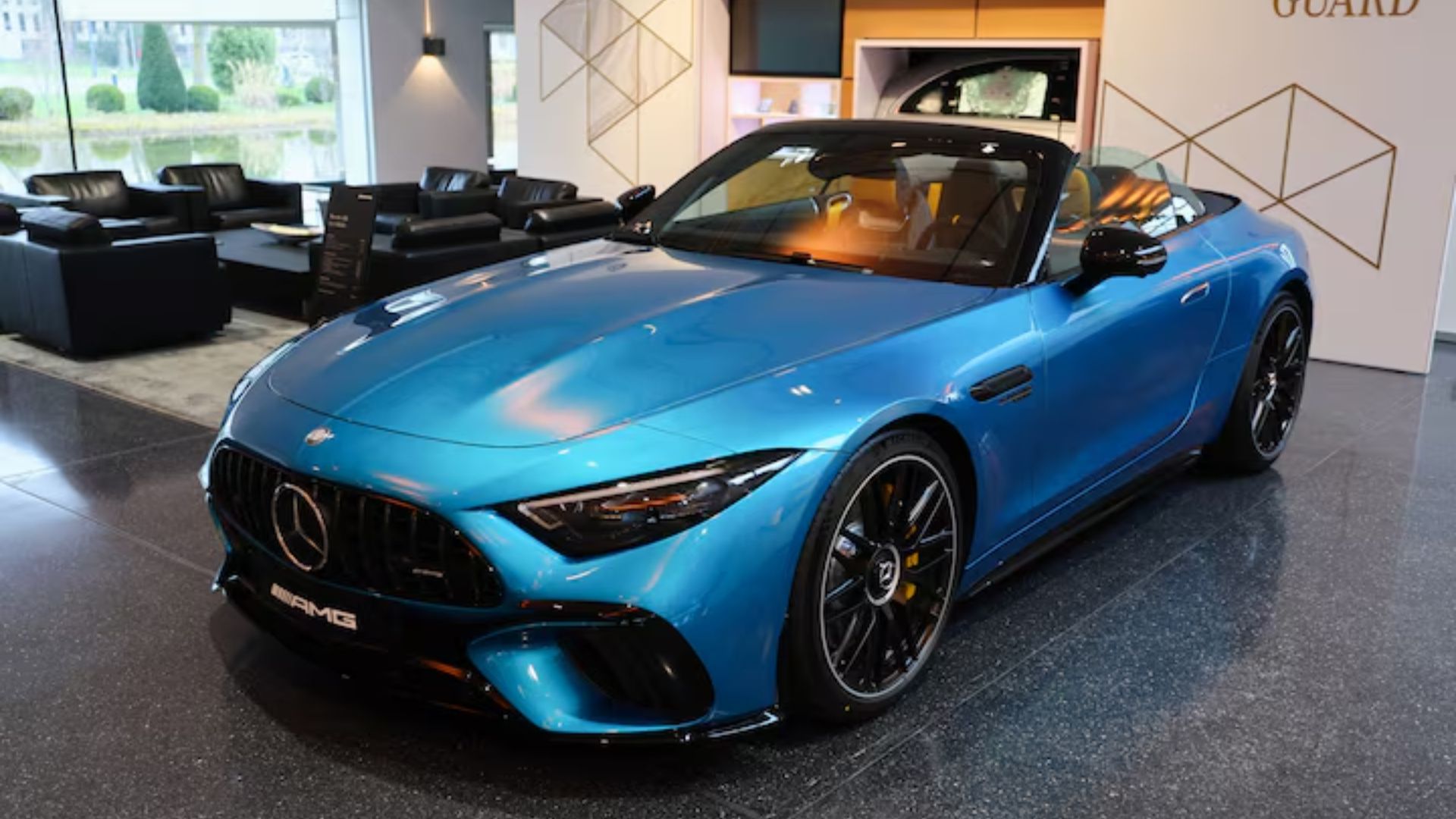Summary
- Worst return on sales since pandemic in key car unit
- Blames weak China, fierce competition for slump
- Says will fight for market share in China, pledges cost cuts
(Reuters) – Mercedes-Benz will step up cost cuts after earnings halved in the third quarter hit by tepid demand and fierce competition in China, it said on Friday.
The luxury carmaker cut its full-year profit margin target twice during the third quarter, joining a growing number of European rivals blaming a weakening Chinese car market for falling profits and margins.
Union Investment, which according to LSEG is among the 30 top investors in Mercedes, called on the management to amend its strategy as it sees no market for 2 million luxury cars any longer.
“We are clearly in favour of adjusting the strategy and adapting it to the new market conditions and the new competition from China,” said portfolio manager Moritz Kronenberger.
Mercedes refuses to participate in the price war in China and prefers to stick to its “value over volume” strategy, hoping that a massive new model rollout will help to revive sales next year.
The “value over volume” approach can be successful if demand and capacity are roughly equal, Kronenberger said, adding that currently this is not the case for the automaker.
“Chinese demand is currently focused on affordable electric cars. And Mercedes has nothing to offer here,” he said.
Mercedes shares were down 1.6% at 1246 GMT, dragging down peers BMW and Volkswagen.
The stock has lost around 8% year to date, underperforming Germany’s benchmark DAX index but still faring better than Volkswagen, BMW, and Porsche AG.
The pan-European autos index is down 10% year-to-date, the worst-performing sector in Europe this year.

PROFITABILITY DROPS
Mercedes’ car division’s adjusted return on sales fell to 4.7% in the third quarter from 12.4% last year, its worst profitability since the pandemic, while earnings in the unit more than halved, worse than expected by analysts.
“The Q3 results do not meet our ambitions,” CFO Harald Wilhelm said in a statement, adding that the group will step up cost cuts.
Wilhelm declined to provide more details about the cost cuts, but warned that “it will be tighter and tougher for sure”.
Europe’s biggest automaker, Volkswagen is considering plant closures in Germany for the first time.
Stifel analyst Daniel Schwarz noted substantial progress already made by Mercedes in reducing fixed costs since 2019 but there were “fewer low-hanging fruits”, especially when compared to Volkswagen.
In 2020, Mercedes launched a plan to reduce costs by 20% between 2019 and 2025, 15-16% of which was already achieved, according to the finance chief.
The July-September earnings were hit as Chinese consumers continued to cut back on luxury goods in a weakening economy, which has in particular weighed on Mercedes’s lucrative high-end S-Class model sales in the country.
Model revamp costs added to the pressure, especially for new versions of the G-Class SUV, which will hit the market in the next quarter, Mercedes added.
In 2024, the company sees car sales slightly below the previous year, and fourth-quarter sales in line with the third quarter.
When asked about a potential sale of Mercedes’s 35% stake in Daimler Truck, Wilhelm said he prefers not to rush with it as he sees “great potential” in the truckmaker that should materialise later.
The comments boosted Daimler Truck shares by 4%, to the top of Germany’s DAX stock index.
CHINA WOES
Mercedes-Benz CEO Ola Kaellenius has warned that Chinese consumers are extremely cautious about making big purchases, as long-standing economic weakness and a real estate crisis have created considerable uncertainty for consumers.
Stifel’s Schwarz said a substantial part of the problem is also waning Chinese preference for German luxury cars in general.
Talks between Brussels and Beijing continue over looming tariffs on imports of Chinese EVs into Europe, a major headache for Europe’s China-dependent car heavyweights due to the fears of potential retaliation.
Mercedes-Benz, which counts China’s Beijing Automotive Group Co Ltd and Geely (GEELY.UL) Chair Li Shufu as its two top shareholders, has called the tariffs a “mistake”, urging the European Commission to delay their implementation to allow further talks on a deal.
($1 = 0.9240 euros)
Reporting by Andrey Sychev and Ilona Wissenbach, additional reporting by Paolo Laudani; Editing by Rachel More, Sonali Paul and Elaine Hardcastle











